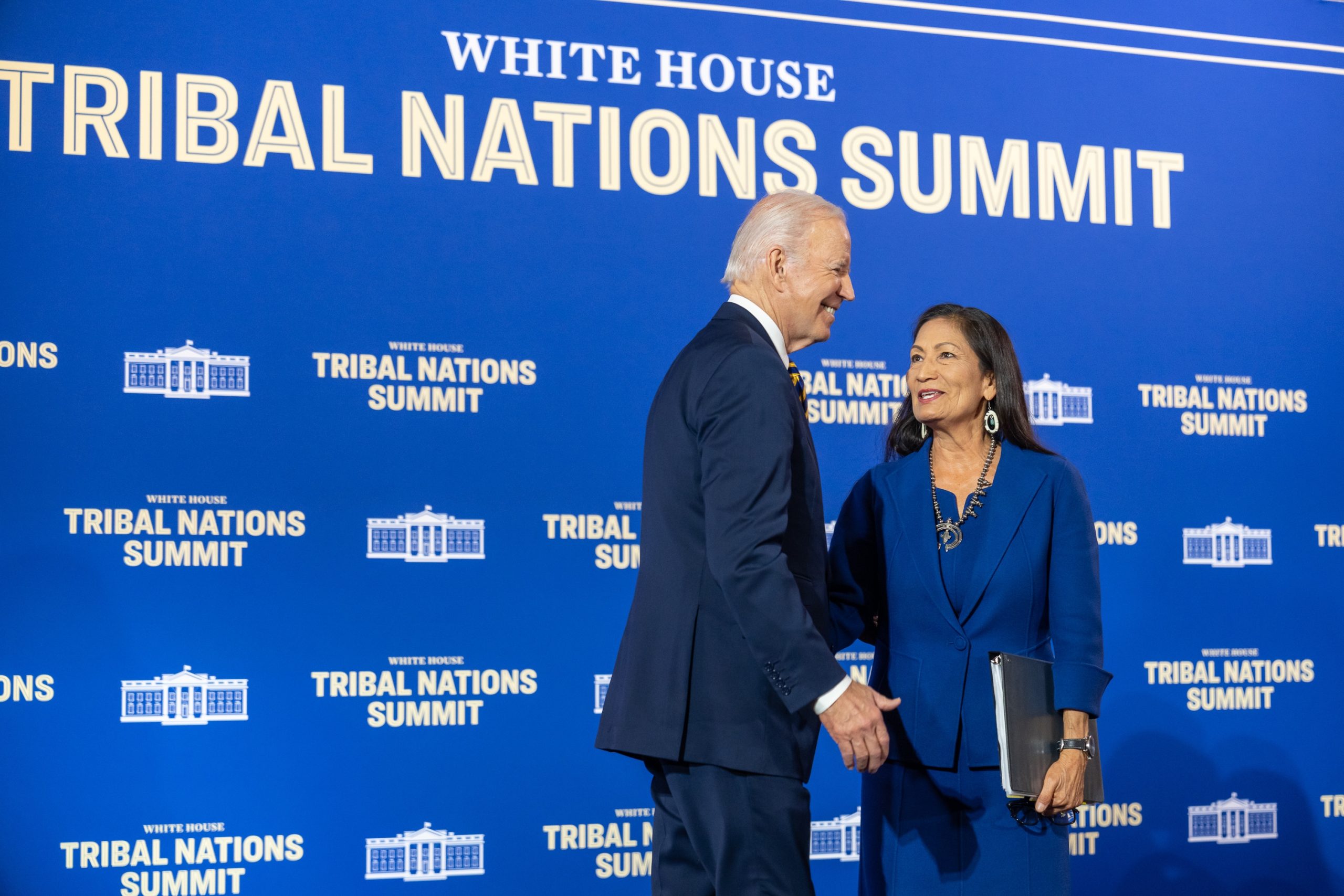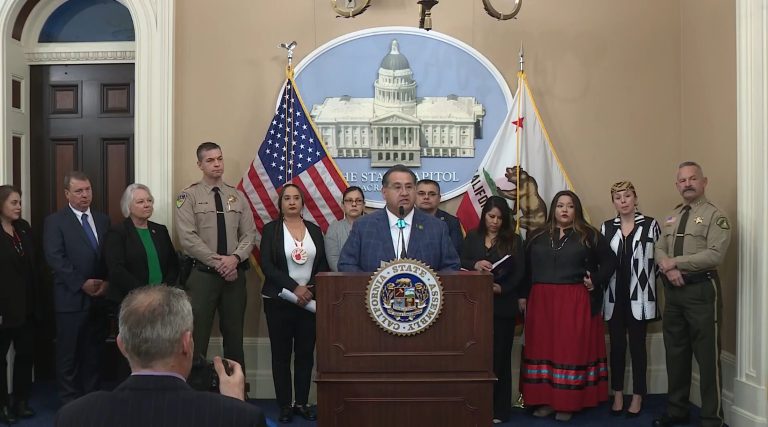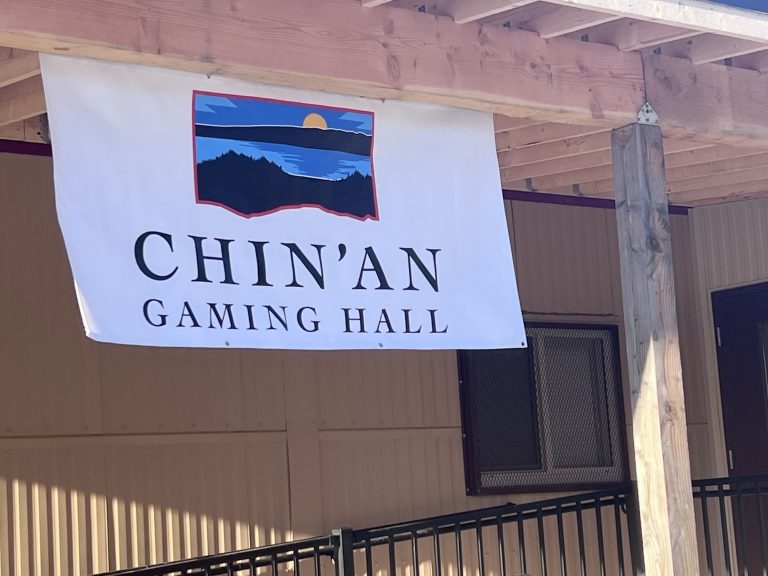Podcast: Play in new window | Download | Embed
Plans are underway for a huge winter construction season at the Willow oil project on the North Slope of Alaska.
This comes as a federal judge last week rejected calls from environmental and grassroots Native groups to block the development.
Rhonda McBride from our flagship station KNBA reports.
Earth Justice and other organizations vow to appeal the decision to the 9th Circuit Court. They’ve dubbed the project a “carbon bomb,” which would escalate climate change.
Although the Biden administration reduced the scale of the project earlier this year, environmental groups say the president broke a campaign promise to put an end to new oil and gas development on public lands and waters.
Willow is on federal land in Alaska’s National Petroleum Reserve, an area ConocoPhillips has been exploring for years. The company estimates the project holds up to 600 million barrels of oil.
It says it plans to spend $900 million this winter and put about 18-hundred people to work. A large coalition of Iñupiat communities and organizations on the North Slope welcome the economic benefits of the project.
Others like Nuiqsut, which is closest to the development, are divided about the impacts.
Disclosure: ConocoPhillips has been an underwriter of KNBA.
 The White House announced Monday that President Joe Biden will host the third annual White House Tribal Nations Summit of his administration on December 6-7.
The White House announced Monday that President Joe Biden will host the third annual White House Tribal Nations Summit of his administration on December 6-7.
The summit is part of a campaign promise to tribes for the U.S. to honor the nation-to-nation relationship.
The event is chaired by U.S. Secretary of the Interior Deb Haaland (Laguna Pueblo) and other administration officials.
Tribal leaders from each of the 574 federally recognized tribes are invited to attend.
They’ll engage with administration officials about top issues facing their communities.
The administration says some of the President’s work in Indian Country since taking office includes infrastructure investments, the securing of advance appropriations for the Indian Health Service, and the creation of national monuments in Nevada and Arizona.
The White House Tribal Nations Summit was held annually for eight years during the Obama administration.
 Meanwhile, tribal leaders from across the country are gathering in New Orleans this week for the National Congress of American Indians annual convention.
Meanwhile, tribal leaders from across the country are gathering in New Orleans this week for the National Congress of American Indians annual convention.
They’ll discuss top issues facing their communities.
One issue of debate is a proposal to limit NCAI’s eligibility criteria, which includes restricting the voting membership to federally recognized tribes and individual membership eligibility to only citizens of federally recognized tribes.
The proposal also seeks that board members and regional vice presidents be citizens of federally recognized tribes.
This year is also an election year of the organization’s executive committee, including the end of four-years of leadership by NCAI President Fawn Sharp.
The convention will feature an exhibit commemorating 80 years and tracing NCAI’s history.
The convention kicked off over the weekend and will wrap up on Friday.
More than two thousand people are expected to attend.
 Otoe-Missouria Chairman John Shotton is raising concerns about tribal vehicle tags after a recent incident in Oklahoma.
Otoe-Missouria Chairman John Shotton is raising concerns about tribal vehicle tags after a recent incident in Oklahoma.
According to the tribe, one of its enrolled tribal members was issued a $249 traffic ticket for failure to pay state taxes on their motor vehicle.
Chairman Shotton in a statement said, after more than 20 years of cooperation between the state and tribes regarding vehicle tag registration, it appears the state has altered its position of understanding concerning tribal tags.
He goes on to say this change was made without notice or consultation with tribes that operate vehicle tag registration.
The chairman says they’re concerned and are reviewing legal options.
According to the tribe, the justification for the citation was that the tribal member did not have a right to a tribal tag because the tribal member lives outside of tribal jurisdiction.
Other tribal leaders in the state are also voicing concerns.
 The Shinnecock Indian Nation in New York is hosting a grand opening and ribbon cutting ceremony for Little Beach Harvest Dispensary.
The Shinnecock Indian Nation in New York is hosting a grand opening and ribbon cutting ceremony for Little Beach Harvest Dispensary.
It’s the first tribally-owned and licensed, tax-free cannabis dispensary on Long Island.
The tribe’s hosting the celebration and giving a first look at the dispensary on Wednesday.
Get National Native News delivered to your inbox daily. Sign up for our newsletter today.



